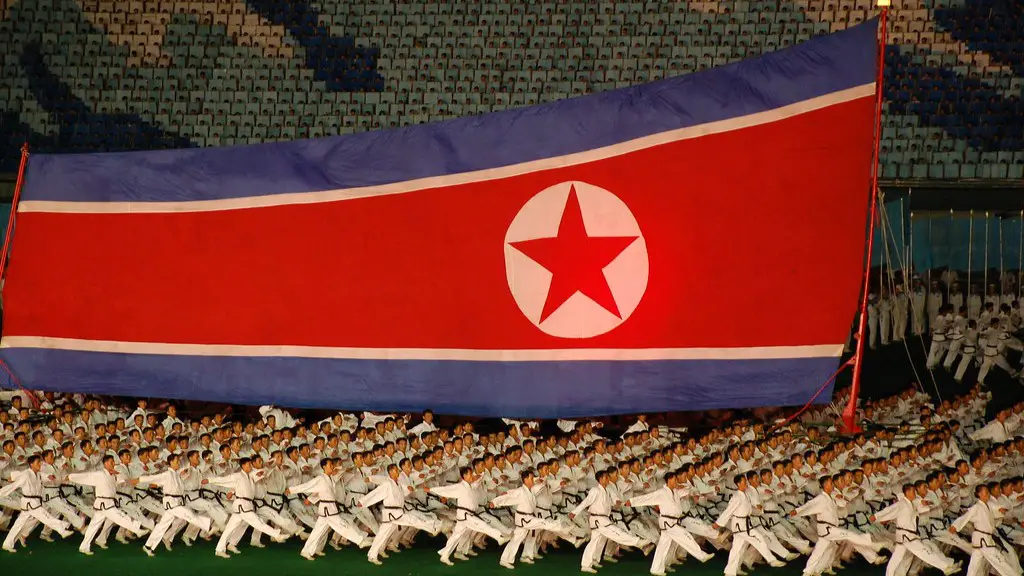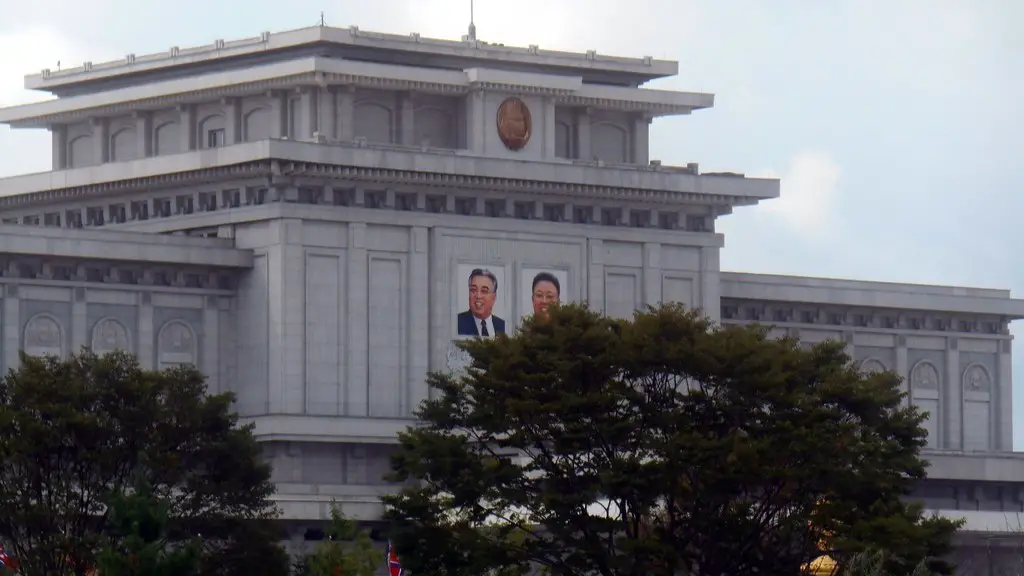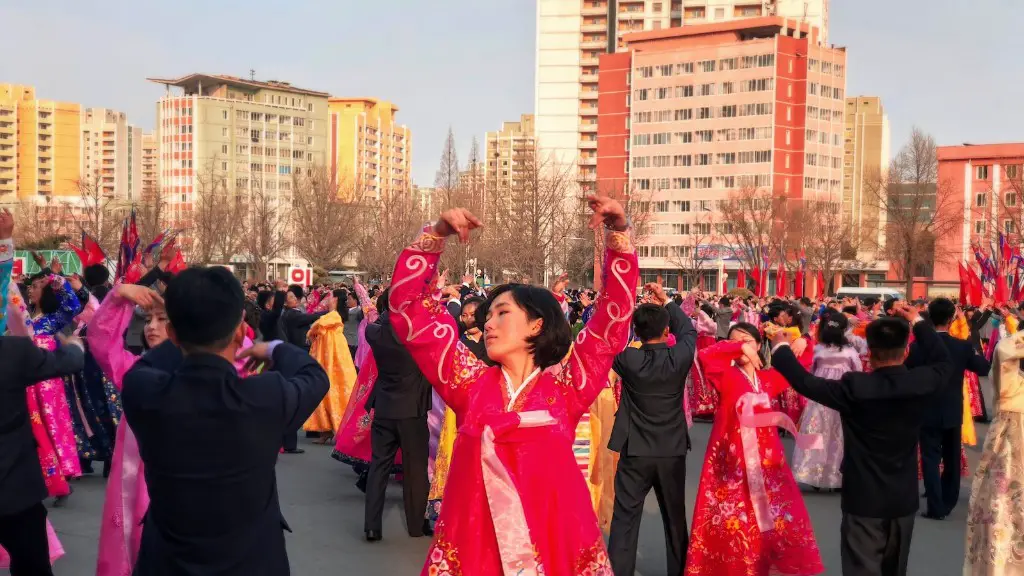1. North Korea’s Motive for Abducting Japanese Citizens
In 1978, North Korea abducted 13 Japanese citizens in an attempt to train its operatives for espionage and to indoctrinate them with North Korean revolutionary ideology. The abduction is part of a pattern of state-sanctioned abductions conducted by North Korea from 1977 to 1983.
North Korea’s main objective in abducting Japanese citizens was to gain intelligence. Through this process, North Korea was able to gain insight into Japanese culture, language, and political systems. Additionally, the abductions helped North Korea to gain access to advanced technology that was otherwise not available in the country. North Korea was also looking to acquire skills useful for its intelligence operations, such as cipher-breaking and bombing techniques.
Furthermore, North Korea was looking to indoctrinate the victims into its own revolutionary ideology. Those abducted were seen as ideal candidates for such indoctrination, being from a society that North Korea saw as vastly different from its own. In addition to the indoctrination, abducted Japanese citizens were also used to gain access to information that would have been harder to obtain in North Korea.
Given the highly secretive nature of North Korea’s activities, it is difficult to surmise why they conducted the abductions. However, the motive appears to have been to gain intelligence and to indoctrinate individuals with its own ideology, as well as to obtain advanced technology and obtain access to information.
2. Abductees’ Accounts
The accounts of the abductees offer valuable insight into North Korea’s motives. The victims recounted stories of being taken from their homes and families at gunpoint, and told to forget their previous lives and adapt North Korean customs. They were taught the North Korean language, culture, and political system.
The abductees were often subjected to psychological abuse, with some victims claiming to have been tortured and threatened with death if they did not comply. Those who tried to escape were often punished by being separated from their family members, with some being sent to labor camps and others disappearing without a trace.
Many of the abductees have reported a sense of confusion and isolation, as they were unable to communicate or understand their captors’ motives. Some victims have gone on to share their experience, drawing global attention to the issue.
The victims have noted that even decades after their abduction, they remain traumatized by their experience. Many of the victims have struggled to readjust to Japanese society and find it difficult to trust anyone outside of family members.
3. International Response
The abduction of Japanese citizens by North Korea has been met with widespread international condemnation and has been labeled as a human rights violation. In 2003, the United Nations adopted the International Convention for the Protection of All Persons from Forced Disappearance, which condemns all forms of forced disappearance, including those conducted by North Korea.
The issue of North Korea’s abduction of Japanese citizens was taken up by the United Nations Human Rights Council in 2007. In 2009, the Council called upon North Korea to “immediately halt the abduction of all persons and to immediately release all persons abducted.”
Japan has responded to the abduction of its citizens by conducting diplomatic negotiations with North Korea. Despite their efforts, Japan has yet to find a lasting resolution to the issue, with the victims still yet to return home.
4. Survivors and the Government of Japan
With the abductees still yet to return home, the victims’ families in Japan have been leading a campaign to bring them back. The government of Japan has also continued to push for their release. In 2014, the Japanese government passed a law that requires it to take diplomatic measures to seek the release of the victims.
Despite their efforts, the North Korean government remains unwilling to cooperate. North Korea has repeatedly denied responsibility for the abductions and even refuses to acknowledge the very existence of the victims. This has left families in Japan in an agonizing state of limbo and uncertainty.
5. North Korea’s Denial
North Korea’s refusal to acknowledge the abductions has brought about international criticism. The United States and other Western countries have called upon North Korea to abide by international standards of human rights. Unfortunately, North Korea’s stance on the issue remains unchanged.
The lack of resolution to the issue reflects the complexities of dealing with North Korea. To make any progress, there must be a willingness on the part of North Korea to cooperate, which has been lacking so far. Without cooperation, it is unlikely that a resolution to the abductions will be found.
6. Diplomatic Overture
Given the lack of progress in resolving the issue, diplomatic overtures to North Korea may be the only way to secure the release of the Japanese abductees. Japan has been exploring diplomatic approaches to the issue and has opened a dialogue with North Korea on the issue.
Japan’s Prime Minister Shinzo Abe has expressed his willingness to meet with North Korean officials to discuss the issue. Japan has also suggested that North Korea provide access to the abductees for DNA testing or other examinations that could prove their status.
Still, it remains to be seen whether North Korea’s reluctance to cooperate can be overcome. Without this, it is unlikely that Japan will be able to secure the release of the Japanese abductees.
7. The Families of Victims
The issue of the abduction of Japanese citizens has not only been a pressing issue for the government of Japan, but also for the families of the victims. The families’ suffering is compounded by the lack of progress made on the issue, leaving them in an agonizing state of limbo.
The families of the victims have continually called for the North Korean government to cooperate and to provide them with conclusive evidence of their loved ones’ fates. The families have pleaded for the victims to be returned home and hope to one day find out what happened to their loved ones.
8. Significance of the Abductions
The abduction of Japanese citizens by North Korea is significant in its implications for international security and human rights. It illustrates a disregard for the well-being of citizens, as well as a disregard for international agreements on human rights.
The abductions have also raised questions about the efficacy of diplomatic measures in dealing with North Korea. The lack of progress in resolving the issue reflects the complexities of navigating the political atmosphere in the region, as well as the North Korean regime’s reluctance to cooperate.
The abductions have also highlighted the importance of international cooperation in tackling human rights violations. Without a unified international response to the issue, it is unlikely that a resolution to the issue will be found.
9. Public Awareness and Pressure
In order to bring an end to the abductions, public awareness and pressure must be exerted on North Korea. This can be done through public demonstrations, social media campaigns, and other forms of activism.
In addition to this, the international community must continue to pressure North Korea to cooperate and to respect international standards of human rights. Without sustained international pressure, it is unlikely that there will be any progress in resolving the issue.
10. Humanitarian Implications
The abduction of Japanese citizens by North Korea has had severe consequences. The victims and their families have suffered greatly, with many of their lives forever changed by the experience.
The victims have had to adjust to a new society and culture, while struggling to cope with the trauma of their abduction. For the families, the issue has been a source of endless pain and suffering, as they remain uncertain of the fate of their loved ones.
This issue is a reminder that human rights should be respected by all states, and that international cooperation is essential in dealing with complex human rights issues. Without a unified international response and sustained pressure, it is unlikely that North Korea will change its stance on the issue.





